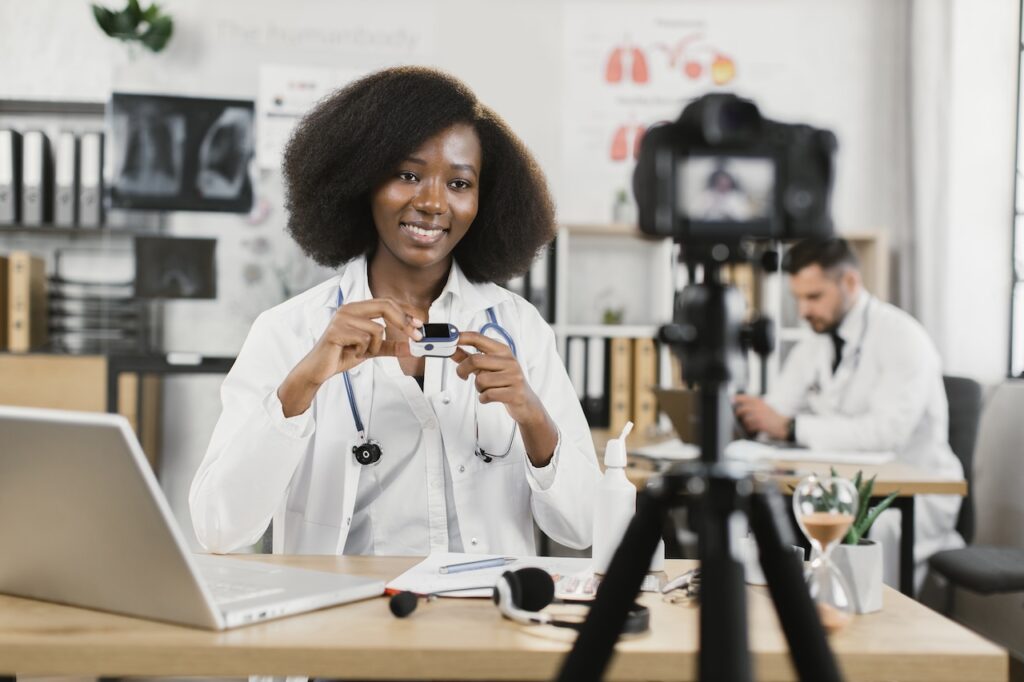Gain Camera Confidence: Your Essential Guide for Healthcare Professionals

In an era where digital communication reigns supreme, the ability to connect with others through video has become an invaluable asset for healthcare professionals. Whether you’re conducting virtual consultations, creating educational content, or sharing your expertise with peers, appearing confident and engaging on camera is essential. However, many healthcare professionals find the idea of being on camera daunting. This comprehensive guide offers practical strategies to help you gain camera confidence and make a meaningful impact through video.
Why Camera Confidence Matters for Healthcare Professionals
- Patient Connection: Video can help you build trust and rapport with patients, especially in telehealth settings. A confident on-screen presence can reassure patients and make them feel more comfortable sharing their concerns.
- Public Education: Video is a powerful medium for educating the public about health topics. Confident and engaging videos can help you reach a wider audience and improve health literacy.
- Professional Development: Presenting research, participating in webinars, and sharing insights through video can enhance your professional reputation and career prospects.
Strategies to Build Camera Confidence
Prepare and Practice:
- Know Your Material: Thoroughly research and organize your content. The better you understand your topic, the more confident you’ll feel discussing it.
- Rehearse: Practice your presentation multiple times. Record yourself and watch it back to identify areas for improvement.
- Create an Outline: Use an outline to guide your presentation and keep you on track. Avoid reading directly from a script, which can make you sound robotic.
Optimize Your Environment:
- Choose a Quiet Location: Select a location with minimal background noise and distractions.
- Good Lighting: Ensure adequate lighting. Natural light is best, but if that’s not possible, use soft, diffused artificial light.
- Clean Background: Keep your background tidy and professional. A simple, uncluttered background will help keep the focus on you.
Master Your Body Language:
- Eye Contact: Look directly at the camera to simulate eye contact with your audience.
- Posture: Sit or stand up straight with your shoulders relaxed. Good posture projects confidence.
- Gestures: Use natural hand gestures to emphasize your points and add energy to your presentation.
Manage Your Mindset:
- Positive Self-Talk: Replace negative thoughts with positive affirmations. Remind yourself of your expertise and the value you bring to your audience.
- Visualize Success: Imagine yourself delivering a confident and engaging presentation. Visualization can help reduce anxiety and boost your self-assurance.
- Embrace Imperfection: No one is perfect. Accept that you may make mistakes, and don’t let them derail your presentation.
Focus on Your Audience:
- Connect with Your Viewers: Imagine you’re speaking to a friend or colleague. Let your personality shine through and be authentic.
- Engage with Questions: If possible, interact with your audience by answering questions or responding to comments.
- Provide Value: Focus on delivering valuable information that will benefit your audience. When you’re focused on helping others, your confidence will naturally increase.
Technical Tips:
- Test Your Equipment: Before you start recording, test your camera, microphone, and lighting to ensure everything is working properly.
- Good Audio: Invest in a good microphone to ensure clear audio quality. Poor audio can be distracting and make it difficult for your audience to understand you.
- Stable Internet Connection: Use a wired internet connection if possible, to avoid interruptions during live presentations.
Practice and Patience
Building camera confidence takes time and practice. Don’t get discouraged if you don’t feel completely comfortable at first. The more you practice, the more confident you’ll become. Remember to be patient with yourself and celebrate your progress along the way.
By implementing these strategies, healthcare professionals can overcome camera shyness, enhance their on-screen presence, and make a greater impact through video. Whether you’re connecting with patients, educating the public, or advancing your career, camera confidence is a valuable skill that will serve you well in today’s digital landscape.
2 thoughts on “Gain Camera Confidence: Your Essential Guide for Healthcare Professionals”
Comments are closed.